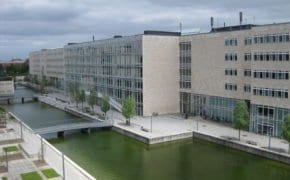Universitetsavisen
Nørregade 10
1165 København K
Tlf: 35 32 28 98 (mon-thurs)
E-mail: uni-avis@adm.ku.dk
Section
Students on the sociology programme at the University of Copenhagen say they are being forced to offend minority groups in a compulsory course where they act out excerpts from a book about life in a poor American city area. The head of the study programme defends the subject’s methodology.

The administrative elite has grown. Both at the University of Copenhagen, and among its competitors. Three experts doubt that this has led to a better university

A hard, no-deal, Brexit threatens the University of Copenhagen's 41 exchange agreements in the United Kingdom.

At the Faculty of Law, students are sent on anthropological fieldwork among 'noble savages' to see the world through new eyes. We followed them.

The Faculty of Humanities is to go through a new round of staff layoffs in April. DKK 31 million is to be cut - just on payroll.

Starting 2020, all applicants under the quota 2 scheme will have to pass a cognitive admissions test at the University of Copenhagen. Applicants are subsequently assessed based on an oral or written interview.

The movement Rethinking Economics believes that the Danish study programmes in economics are too one-sided. Now the debate has gone all the way up to the Danish parliament at Christiansborg, where Minister for Higher Education and Science Tommy Ahlers has been summoned to consultations on the issue.

Uncertainty surrounds the Erasmus programme as stalling Brexit talks continue and many prospective British applicants are increasingly nervous of the outcome. Here, four British students currently studying in Copenhagen share their hopes and fears for the future of Erasmus.

Two departments are to merge at the Faculty of Humanities. There will be cuts to payroll. Students and staff say they are worried.

Biology student says she has been misunderstood in new case of 'victimhood culture' at the University of Copenhagen. We spoke to the student who was mentioned in all the Danish media, but who no one bothered to talk to.
